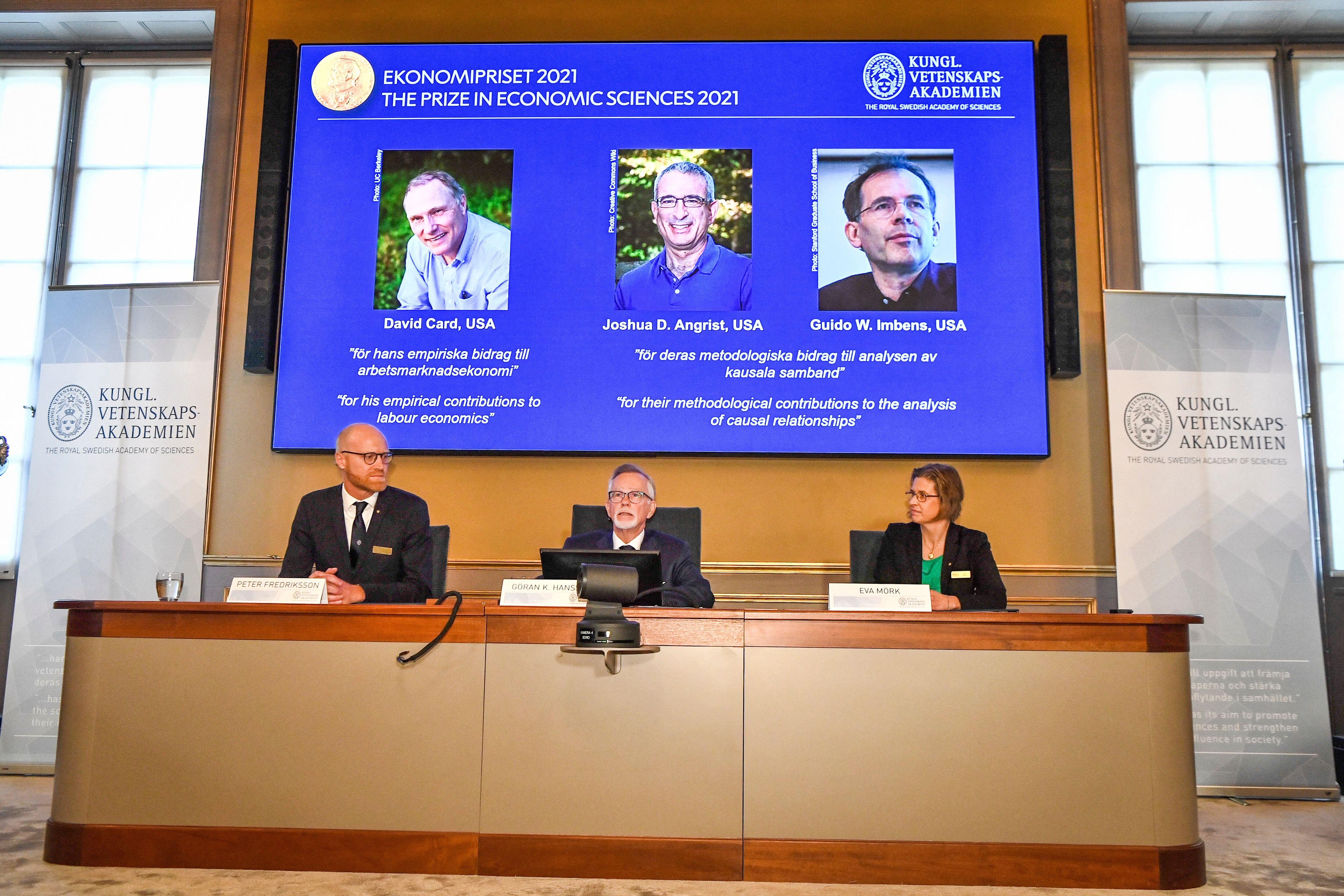The last decade has seen a wave of new studies suggesting that more money really does lead to better schools. The research has influenced court fights over school funding and reshaped the debate about what resources schools need.
Earlier this week, David Card, a Berkeley economist who paved the way for those conclusions with his own school funding research in the 1990s and by popularizing the methods used in later studies, won the Nobel Prize in economics.
By emphasizing the power of “natural experiments” to establish cause and effect, Card revolutionized not only economics, but education research, too. Joshua Angrist — a Massachusetts Institute of Technology economist who has studied charter schools, class sizes, and teacher certification rules — also won the prize, along with Guido Imbens of Stanford.
“Somewhere after 2000, education research became a sexy area for economists,” said Dan Goldhaber, an education economist at the University of Washington. “It was because there were these new techniques that people were using.”
The three economists each addressed a vexing challenge in social science: how to pin down cause and effect in a complex world. Ideally, researchers create randomized experiments. But that often isn’t possible to do. How do we know, for instance, if the Common Core standards helped student achievement or if masking students slows the spread of COVID-19 without being able to randomly assign students to each group?
Card’s answer was to approximate an experiment using seemingly random quirks in the real world.
This approach is now widely used. To study the effect of charter schools, for instance, education researchers use the results of a random admissions lottery. To examine the consequences of holding students back a grade, they’ll compare kids who just exceeded the cutoff for being retained to those who fell just below it.
In his own work, Card regularly focused on education. In a 2010 study, he found that public schools in Canada performed better when facing more competition from nearby religious schools.
In two studies published in 1992, Card found that American students who attended schools with smaller class sizes and higher teacher salaries wound up with better paying jobs as adults.
The findings “surprised the research community,” the Nobel Prize committee wrote. “The results led to a discussion on whether school quality and school resources mattered for school and labor market outcomes.”
Card’s coauthor Alan Krueger, who died in 2019, spent years engaged in spirited debates with another economist, Eric Hanushek, over whether resources matter for schools. Many economists remained skeptical that more funding would lead to better results.
“It seemed as though people just decided at some point as a field that this was a settled question,” said Northwestern University economist Kirabo Jackson.
That has changed recently, based on new studies that use Card’s natural-experiment approach. In an influential 2016 paper, Jackson found that students who attended schools that received more money after court-ordered reforms earned more money as adults than students who attended the same schools just before the new money came through.
Although there are exceptions, other studies using similar quirks of timing, funding formulas, or election results have generally shown the same: more education funding means more learning.
That new consensus was reflected in the latest Nobel awards. “The overall conclusion from the past 30 years of research is that school resources appear to matter for labor market outcomes in industrialized countries,” the prize committee wrote.
Still, they added, “this does not imply that all types of spending increases, in all types of contexts, yield improvements.”
This work has affected the thinking of many researchers, Goldhaber said, including his own. While he used to believe “spending doesn’t matter a ton,” he said, “I’ve moved in thinking that oh, there’s a lot more evidence now that spending matters.”
Critics of the new research approach argue that these so-called natural experiments are not as random as researchers suggest, and therefore fail to approximate genuine experiments. The issue is still a topic of heated debate in court cases over school funding. And Hanushek of the Hoover Institution, a conservative think tank at Stanford, remains an influential voice for the view that resources are not an especially important contributor to student learning. (Last month, Hanushek himself won a prestigious research award that came with a nearly $4 million prize.)
Angrist, one of the other winners of the Nobel Prize, has done extensive research in education. He’s found that charter schools in Boston produce large test score gains, but that highly selective high schools in New York City and Boston do not seem to benefit students who attend them.






